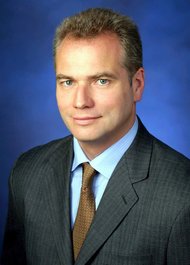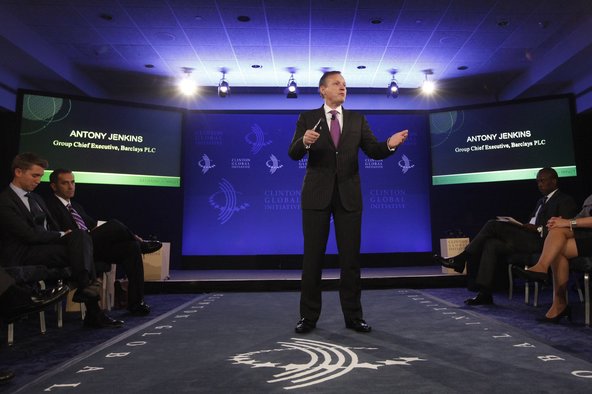 Carsten Kengeter, the former head of the investment banking unit at UBS.
Carsten Kengeter, the former head of the investment banking unit at UBS.
Carsten Kengeter, the former head of UBS‘s investment bank, has been on the outs at the Swiss banking giant for some time. On Tuesday, the bank announced that he was resigning.
Mr. Kengeter has been head of the bank’s noncore division, which oversees the assets that the bank is hoping to unload as it tries to exit high-risk banking activities.
But when he was running the investment bank, Kweku M. Adoboli, a trader in the London office, was accused of authorized trading that led to a $2.3 billion loss for the bank. Mr. Adoboli was eventually found guilty of fraud and sentenced to seven years in prison.
Revolving Door
View all posts
The trading loss raised serious questions about the firm’s oversight and led to the resignation of Oswald J. Grübel, the chief executive of UBS. Also during Mr. Kengeter’s time at the investment bank, UBS became ensnared in an investigation into the manipulation of the London interbank offered rate, or Libor, the benchmark global interest rate.
The bank did not force out Mr. Kengeter at the time, but the scandals damaged his reputation and UBS eventually reassigned him to run UBS’s noncore division.
“I want to thank Carsten for his many contributions to UBS during his four years with UBS, including his three years as C.E.O. of the investment bank, and I wish him the best for his future endeavors,” the chief executive of UBS, Sergio P. Ermotti, wrote in an e-mail to bank employees.
Andrea Orcel will continue to run UBS’s investment bank, Mr. Kengeter’s old job, and the bank named Sam Molinaro to head UBS’s noncore division. Mr. Molinaro is a former top Bear Stearns executive. He joined UBS in early 2012 and will report to Mr. Ermotti, according to the internal memo.
UBS is refashioning itself in the wake of the financial crisis, drastically scaling back riskier businesses like fixed-income trading. The bank announced plans in 2012 to cut about 10,000 jobs, many of those in its investment bank.
Below is a copy of the e-mail from Mr. Ermotti:
Following the successful transfer of our Non-Core portfolio assets into the CorporateCenter earlier this year, Carsten Kengeter will be leaving UBS after a short transition. He will continue to provide advice to UBS on the wind-down of the Non-Core portfolio over the coming months.
I want to thank Carsten for his many contributions to UBS during his four years with UBS, including his three years as CEO of the Investment Bank, and I wish him the best for his future endeavors.
I am pleased to announce that Sam Molinaro will take on the role of Head of Non-Core and Legacy Portfolio, with immediate effect, reporting directly to me. Sam joined UBS in March 2012 as COO of the Investment Bank and was most recently COO of Non-Core and Legacy Portfolio.
Sam brings extensive industry experience from his time at Bear Stearns where he was CFO and then COO. Before joining UBS, he worked in several advisory roles and was CEO and Chairman of Braver Stern Securities. He was instrumental in the set-up and transfer of the Non-Core unit at UBS and I am confident that, with his appointment, we will continue the effective execution of our strategy in this area.
Please join me in congratulating Sam and wishing him every success in his new role.
Yours,
Sergio P. Ermotti
Article source: http://dealbook.nytimes.com/2013/02/12/a-top-ubs-executive-to-depart/?partner=rss&emc=rss


